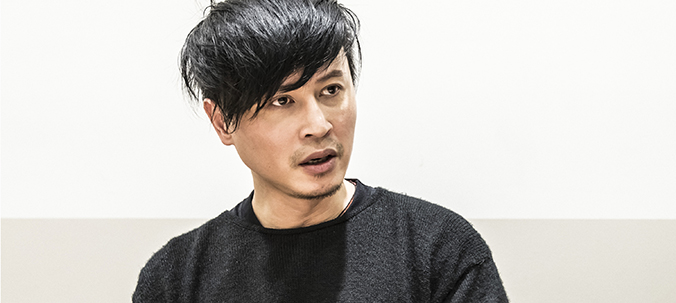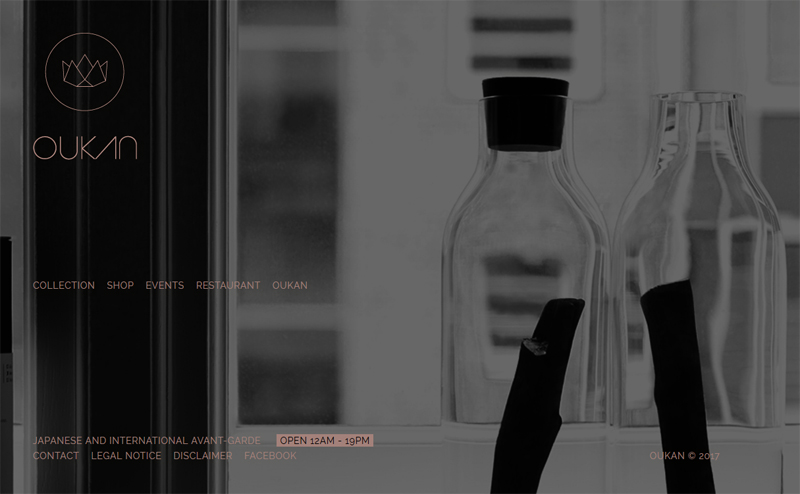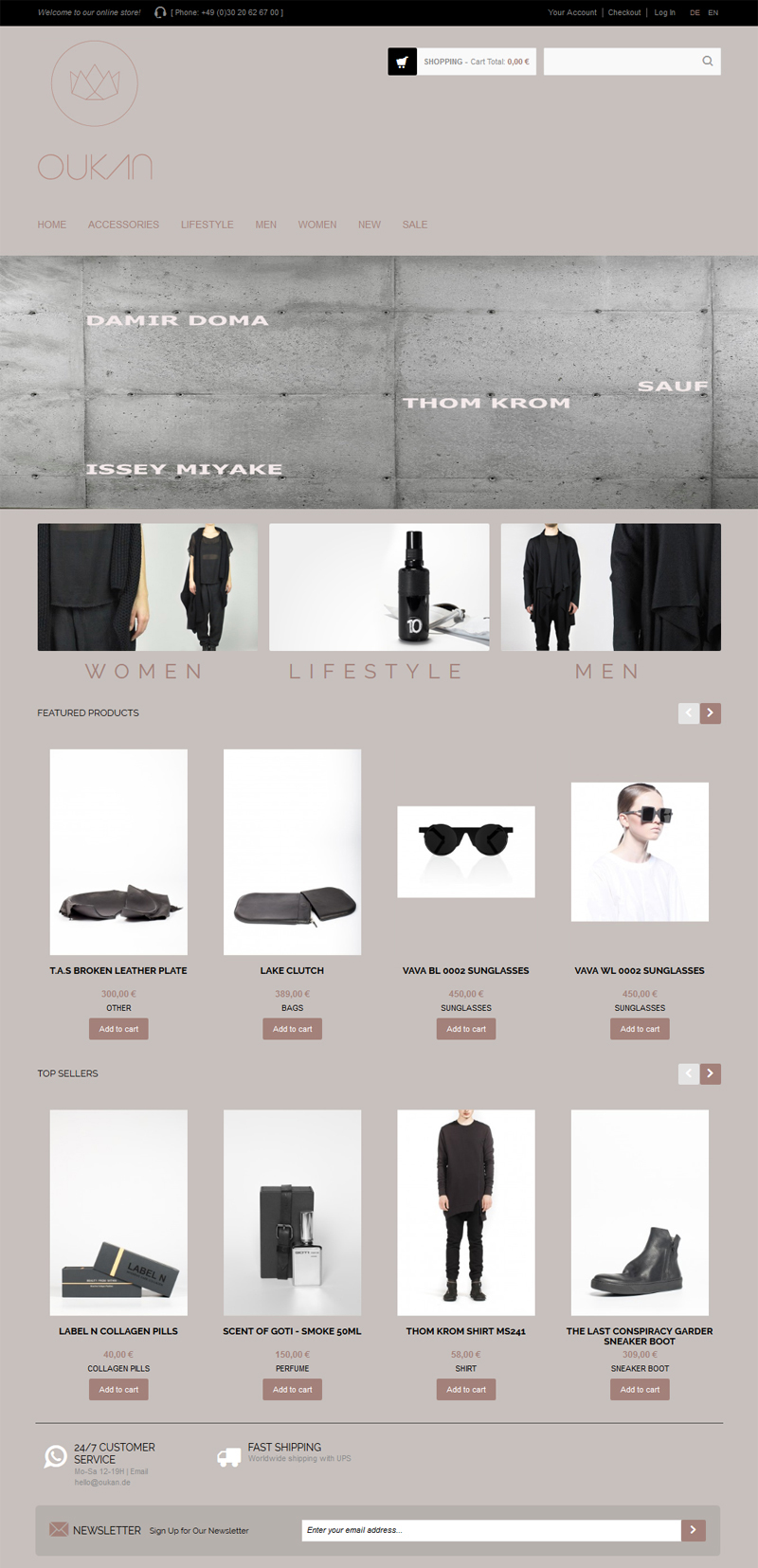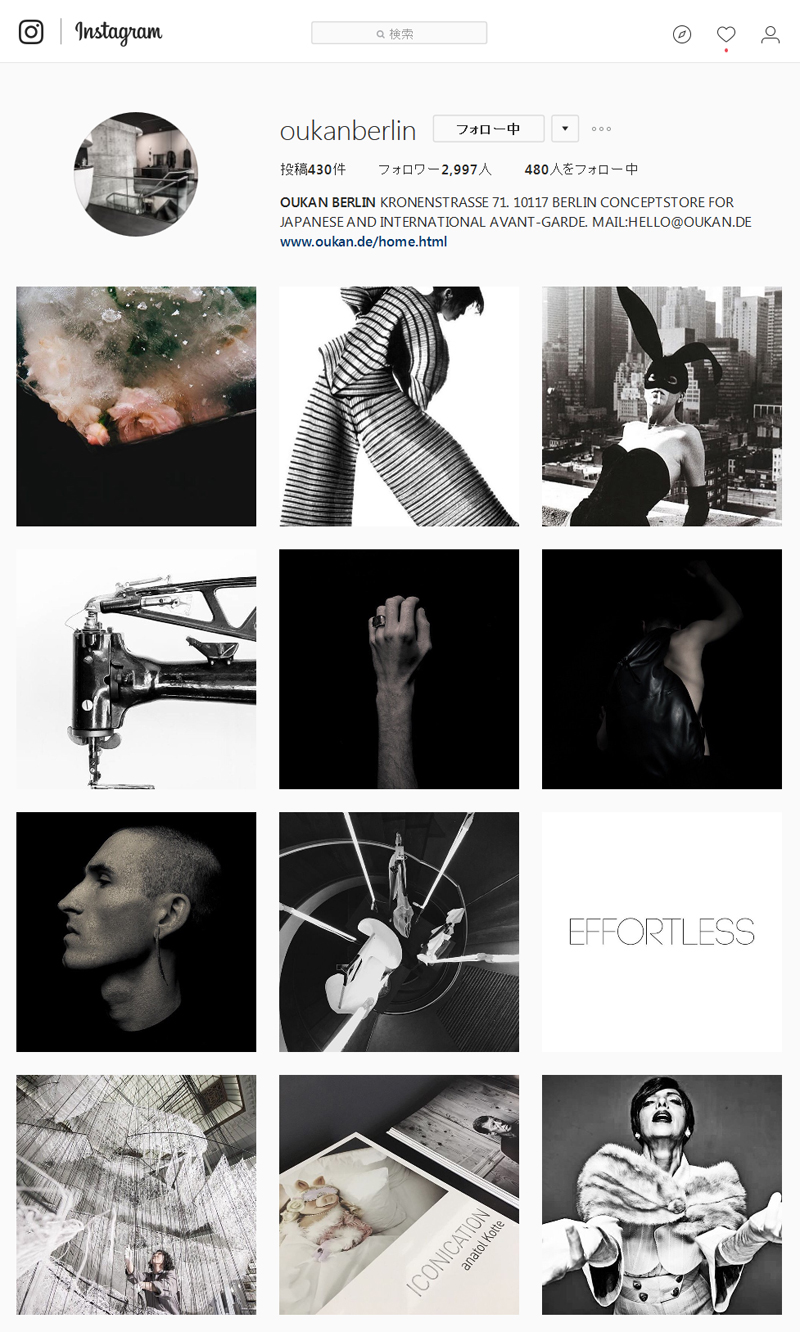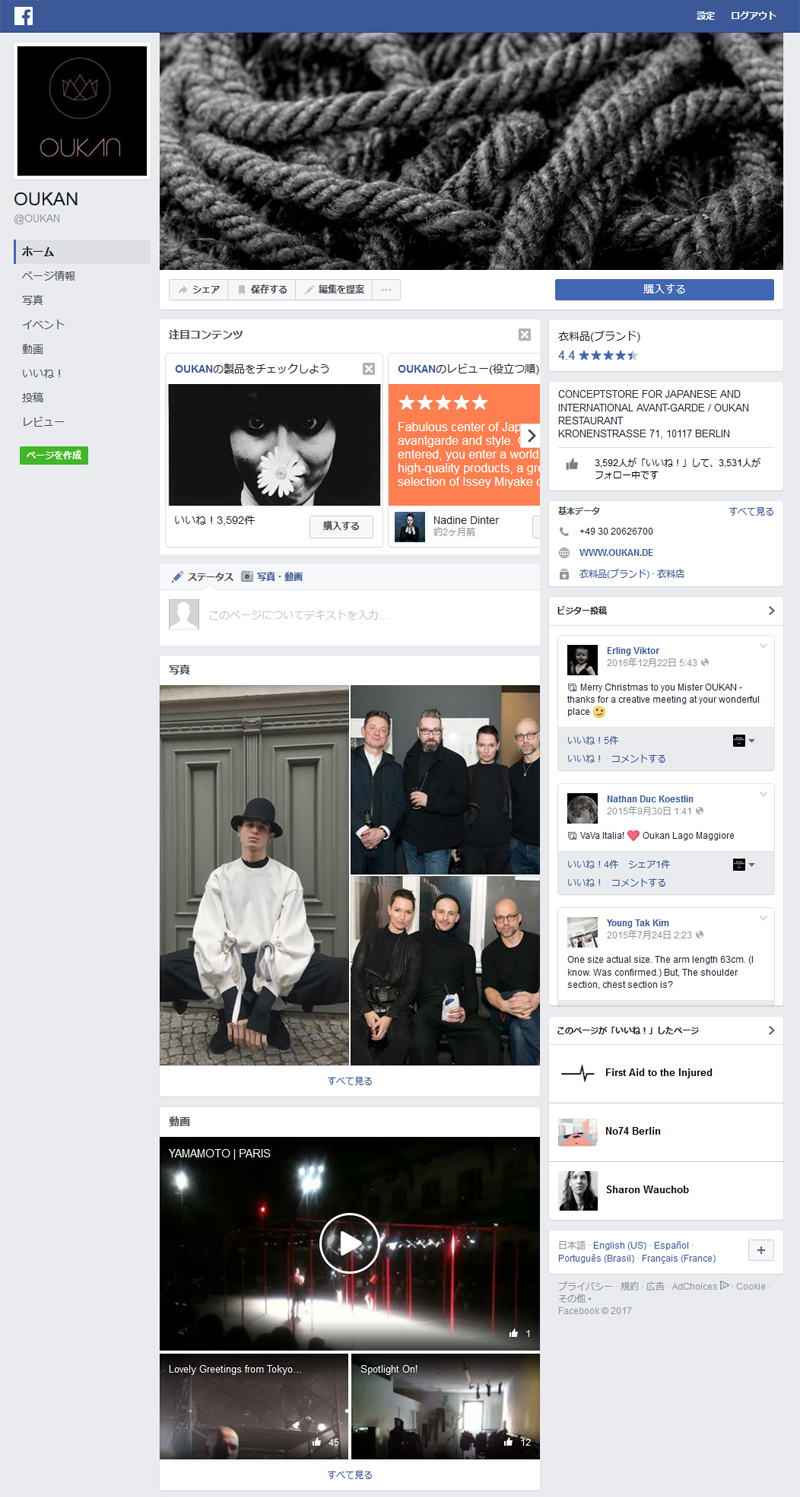Mai Huy Thong Tran
AmazonFWT 2017 A/W, Overseas Guest Interview vol.1
Starting as the charity project 'Tokyo Gakudan' during Mercedes Benz Fashion Week Berlin in July 2011, and shortly after the tsunami catastrophe in Japan, where Huy Thong Tran Mai and friends invited 40 Japanese fashion designers to show their collections, it quickly developed into a bigger project: The wish to permanently bring Japanese brands to the German market by creating a space for their unique avant-garde approach to fashion and lifestyle products formed OUKAN. During fall 2011, the concept store was finally opened. Previously under the project name 'OUKAN71', a hint to the address Kronenstrasse 71 and its Japanese equivalent, it has now developed into OUKAN. Today, as an on-going service, OUKAN also works closely with Japanese designers who wish to establish themselves on a European and especially German market by consulting and supporting them with all occurring questions. Located in a remarkable old building not far from the 'most sophisticated shopping area' on Friedrichstrasse, Berlin now has its own love story between Japanese fashion and international avant-garde. Fashion, design, lifestyle and interior products - 2 floors on over 300 sqm. Under guidance of owner and buyer Huy Thong Tran Mai, OUKAN established itself as a hotspot for avant-garde in Berlin.
[ Website ] http://oukan.de/
[ Instagram ] https://www.instagram.com/oukanberlin/
[ Facebook ] https://www.facebook.com/OUKAN
Mr. Mai Huy Thong Tran, of “OUKAN”, a select shop in Berlin, Germany, was a guest to the Amazon Fashion Week TOKYO 2017 A/W, by invitation from JETRO. He is the owner of this concept shop that mainly carries Japanese brands, and started through a charity event of the Tohoku earthquake and tsunami. With his roots in Asia, we’ve asked him of his impression of Tokyo, the attraction of Japanese brands, and the now of the Berlin fashion scene.
We understand this is your second visit to Japan. What were your thoughts when you received an invitation from JETRO to come to Japan again?
In fact, my visit to Japan last year was also by invitation from JETRO, and it was the best overseas experience of my life, so when they asked me to come again this year, I was very happy. It is a great honor to visit the Fashion Week of Tokyo, one of the world’s foremost fashion centers, and it is a great opportunity to be in touch with Japanese brands that are difficult to find in Paris, so I am really looking forward to it.
What is your impression of the streets of Tokyo and/or its fashion?
For example, Shibuya where the main venue of the Fashion Week is located, is a place where many people gather, but perhaps it is because the Japanese are so well mannered and modest, despite all sorts of things are happening at various places of town, I think it is fabulous that there are never any collisions or incidents. Like Tokyo, in Berlin where I live, many unique young people gather to realize their dreams, and the two cities are similar in this sense, but at Berlin, sometimes the existence of the self becomes too big and causes collisions at times. In addition, the people of Tokyo are bold towards fashion, but they are not just eccentric, they understand what looks good on them, and I think that is wonderful.
Please tell us of your shop “OUKAN”, in Berlin.
It’s a concept shop carrying mainly avant-garde items, of which approximately half are presently Japanese brands, such as “132 5. ISSEY MIYAKE”, “DRESSUNDRESSED”, “T.A.S”, “DETAJ”, “Aquvii”, “NO,NO,YES!”. OUKAN was born from a charity event for the Tohoku earthquake and tsunami. I have been working in the fashion industry for a long time, and I have many friends and colleagues in Japan. When I called them after the Tohoku earthquake and tsunami in 2011, and asked them how things were, I found out that Japan, the whole nation was filled with a feeling of depression. I wanted to do something for the fashion industry of Japan, which I have strong ties with, and decided to hold an event to support young designers. That was the start of OUKAN, and I still deal with many of the Japanese brands I encountered through this event.
What is the shop name “OUKAN” derived from?
“OUKAN” comes from the Japanese word for crown, and pronounced the same way. It was suggested by Mr. Tetsuya Ando, the Designer of “T.A.S”. Our shop is located on Kronen street in Berlin, and in German, “krone” means “crown”. Crowns have an image of privilege, but at the same time, it carries a meaning of “duty”. I don’t like extravagance, but since I work in the mode industry, I feel I have a duty to shoulder. I think my duty is to know and understand the brands I handle, along with ascertaining and supporting its future developments.
How is the reaction of your customers to Japanese brands?
Our shop is visited by many creative customers working in art, music, design related fields, but the more they learn of the philosophy behind Japanese brands, the more enthusiastic they become. I want our customers to learn more about new Japanese designers, and I want to spread the message that for years, Japanese brands have possessed a philosophy towards mode, equal to that of international brands.
What do you think are the characteristics of the creations of Japanese brands or designers?
The first is their love for detail, and next is high quality. In addition, I feel that especially all the brands that OUKAN handles, has the characteristic of not being influenced by passing trends but rather, unfold continuous creations. This point is to common with German brands, but I think Japanese brands have a playfulness, which I think is an important point.
Do you have any interest in traditional Japanese craftsmanship?
Yes, of course. Although Japanese craftsmen value tradition very much, they also have an attitude of always wanting to learn new things. To me it seems, that by doing so, each brand and craftsmen are acquire words with which to assert their existence. For example, Japanese trainees learning at patisseries in Paris, learn the skills quickly, and add their own styles to that. That’s why I love Japanese cakes, and every shop I go to is so good, I always buy a lot, and try out lots of tasting (laugh). I’m Vietnamese by blood, but I grew up in Germany, and I think this allows me to look at Asian culture objectively. From this stand point, I feel strong attractions towards the cultures of Japan.
On the other hand, what do you think are the characteristics of fashion creations or craftsmanship of Berlin, where OUKAN is located?
In Berlin, young designers are very active, and befitting to Berlin, among them many came up from electric music and/or club scene, instead of from the fashion industry. Today in Berlin, street fashion is growing rapidly, and there are even some brands doing shows. I feel that the point in which many designers are influenced or inspired by music and/or culture outside fashion, is common to Tokyo.
Berlin is also known for its abundance of young artists, isn’t it?
Yes, that’s right. Young artists, musicians, designers are gathering to Berlin from around the world, and it is becoming like a city for these young artists to try out their abilities. Also, because it is a city with a short history, there are many parts of it that is still incomplete, and there is still much freedom for these artists to be active freely. Berlin is not an affluent city, but I think it allows for young people to take time and grow on their own, without being wiped out by the tides of commercialism, and I think this is a good point.
Finally, could you please tell us your impression of Fashion Week TOKYO, and what hopes or expectations you have for the remainder of your stay in Japan?
I go to Paris four times a year and I don’t have much time to visit fashion weeks in other cities so my base of comparison is limited, but I feel that in fashion weeks, the culture of the whole city is expressed. It is difficult to describe the differences between the fashion week in Paris and Tokyo, but from seeing the fashion week in Tokyo, I can surely say that here, there are many things I want. I have many friends in Japan, so with the new information I get from them, I’d like to visit as many shows, shops and showrooms as possible, along with visiting restaurants and museums, etc., and absorb as much of Japan as I can.
INTERVIEW by Yuki Harada
TRANSLATION by Aiko Osaki


